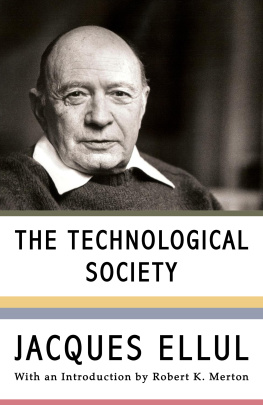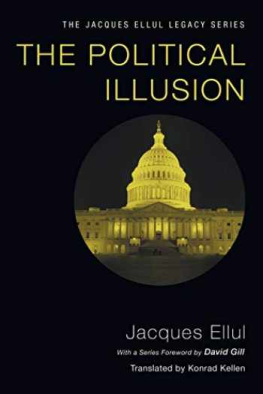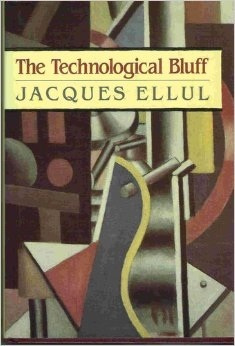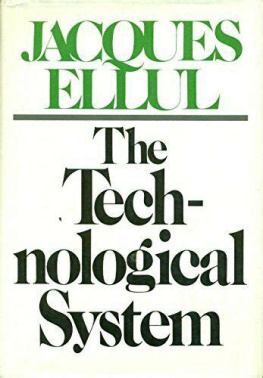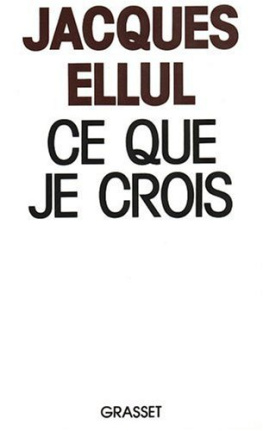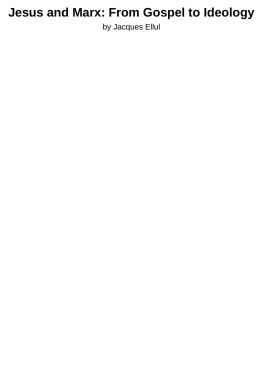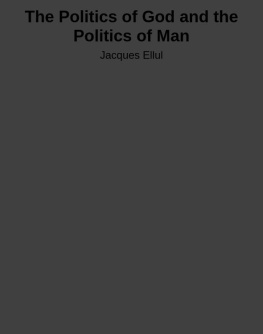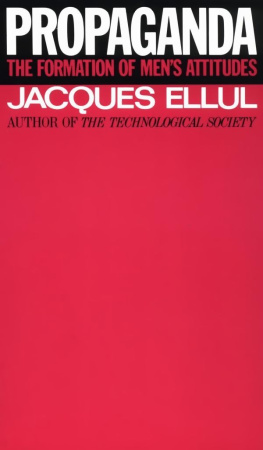Ellul Jacques - Dialectical Theology and Jacques Ellul : an Introductory Exposition
Here you can read online Ellul Jacques - Dialectical Theology and Jacques Ellul : an Introductory Exposition full text of the book (entire story) in english for free. Download pdf and epub, get meaning, cover and reviews about this ebook. City: Minneapolis, year: 2014, publisher: Fortress Press, genre: Religion. Description of the work, (preface) as well as reviews are available. Best literature library LitArk.com created for fans of good reading and offers a wide selection of genres:
Romance novel
Science fiction
Adventure
Detective
Science
History
Home and family
Prose
Art
Politics
Computer
Non-fiction
Religion
Business
Children
Humor
Choose a favorite category and find really read worthwhile books. Enjoy immersion in the world of imagination, feel the emotions of the characters or learn something new for yourself, make an fascinating discovery.

- Book:Dialectical Theology and Jacques Ellul : an Introductory Exposition
- Author:
- Publisher:Fortress Press
- Genre:
- Year:2014
- City:Minneapolis
- Rating:4 / 5
- Favourites:Add to favourites
- Your mark:
Dialectical Theology and Jacques Ellul : an Introductory Exposition: summary, description and annotation
We offer to read an annotation, description, summary or preface (depends on what the author of the book "Dialectical Theology and Jacques Ellul : an Introductory Exposition" wrote himself). If you haven't found the necessary information about the book — write in the comments, we will try to find it.
In Dialectical Theology and Jacques Ellul, Jacob E. Van Vleet argues that the work of Jacques Ellul is frequentlyand deleteriouslymisread on account of inattention to the theological underpinning that governs Elluls thought. In a penetrating analysis, the first of its kind, Van Vleet provides a substantive account of the theological structure of Elluls work and demonstrates the determinative role that theology, especially dialectical theology, plays in a proper understanding of Ellul.
Van Vleet offers a major introduction to Elluls thought, his contribution to theology and philosophy, and how his philosophy of technology is both theologically informed and culturally relevant. As well, this work situates Elluls theological and philosophical thought within an important genetic context, from Kierkegaard to the dialectical theologians of the twentieth century.
Ellul Jacques: author's other books
Who wrote Dialectical Theology and Jacques Ellul : an Introductory Exposition? Find out the surname, the name of the author of the book and a list of all author's works by series.

